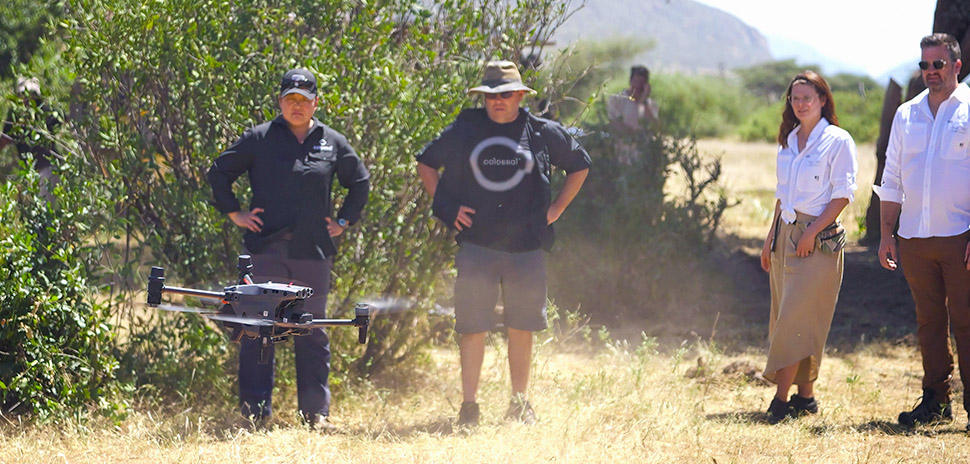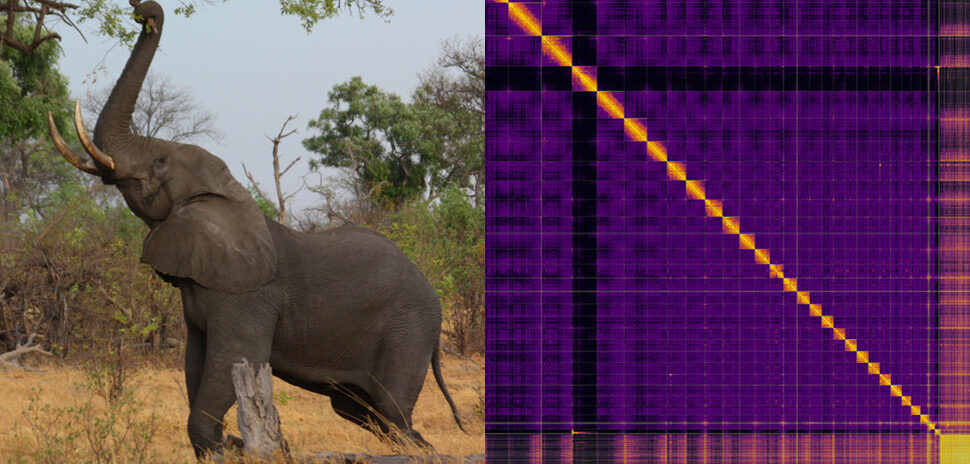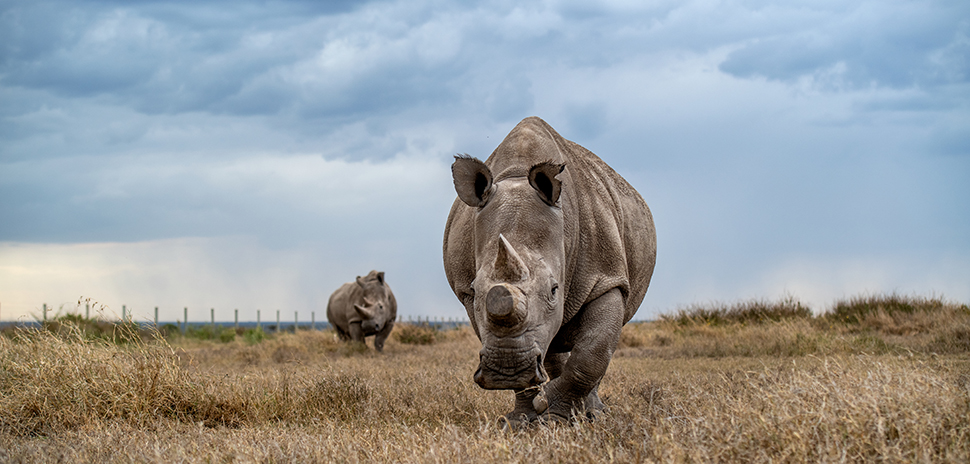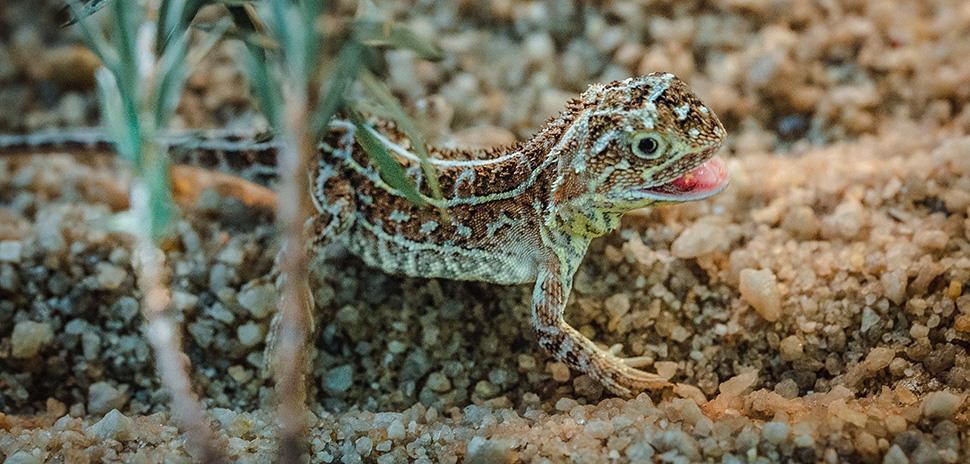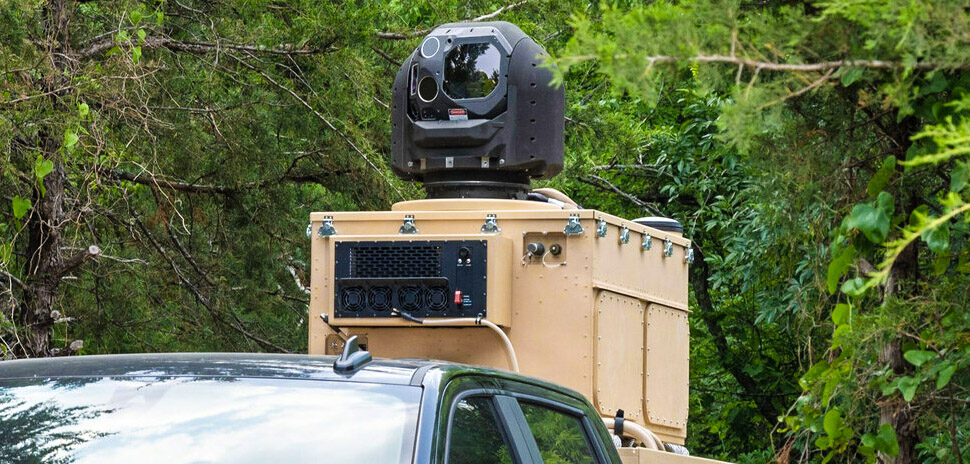In a first-of-its-kind initiative, Texas-based Colossal Biosciences, the world’s first de-extinction and species preservation company, has partnered with Save the Elephants to use cutting-edge drone technology and machine learning to help track African elephants in Kenya.
Save the Elephants is a leading nonprofit that works to secure a future for wild African elephants and the technology will be used for both conservation and research purposes.
“Elephants are in dire need of additional conservation technologies to protect them. Given Colossal’s commitment to the preservation, protection and conservation of animals and ecosystems, we are excited for the opportunity to create a new technology,” Colossal co-founder and CEO Ben Lamm said in a statement.
“With this project, we will begin to understand elephant decision-making and build models to better understand behavior,” Lamm added. “This will ultimately lead to more effective habitat conservation and create a more effective, passive elephant tracking system that will not be dependent on human observation in the field, or elephant immobilizations and collaring.”
Save the Elephants will deploy a small fleet of drones equipped with high-resolution and infrared cameras to capture elephant behavioral data, Colossal said. The data gathered will then be processed by Colossal’s machine learning core to develop algorithms that will label elephants and automatically identify individual and collective social behavior.
“The technological sophistication of modern drones, combined with appropriate analysis including the use of machine learning and AI expertise, will reveal many novel insights into elephant behavior and ecology,” Fritz Vollrath of Save the Elephants said in a statement. “And the better we understand elephants, the more we can help to secure a future for these iconic giants.”
Using AI to analyze elephant behavior
Observation of the deployment of the elephant tracking drones. [Image: Colossal Biosciences]
Colossal, which has operations in Dallas, said that the AI models it developed will detect, track, and map the location of elephants in their natural habitat.
Colossal said that pose estimation and behavior analysis techniques will then analyze the signals, decision making, and social dynamics of elephant herds. Ultimately, these tools will be used to help researchers at Save the Elephants understand and organize the vast amounts of video data that is being collected, standardize behavior detection, allow for the individual behavior observation of an entire herd over long time frames, and uncover nuanced behaviors that may go unnoticed by human observers.
“This initiative has put Colossal one step closer to revolutionizing the protection and preservation of all elephant species,” said Matt James, Colossal’s chief animal officer. “By identifying innovative approaches to conserve these endangered species, we’ve been able to understand their behavior in the wild better than ever before.”
Elephants are a keystone species and are prime contributors to maintaining the vitality and biodiversity of their ecosystems, Colossal added.
Wildlife crime, poaching, and conflicts have led to sharp decline in elephants
Colossal said that the growth of wildlife crime and poaching, as well as human-elephant conflict has led to a sharp decline in Asian, African, and Forest elephants. It said that poaching claimed more than 100,000 African elephants between 2010-2012 alone, while elephant endotheliotropic herpesvirus (EEHV), a virus Colossal is committed to eradicating, has been responsible for about half of all deaths of young elephants in human care.
Research data derived from the drone project will help develop an understanding of elephant decision-making and behavior using AI models. It also will provide Colossal with key data to use in for the eventual rewilding of the woolly mammoth, the company said.
Colossal said that studies have confirmed the urgency of rewilding-focused projects because of the rapid loss of many animal species, just as the world is starting to discover how much they impact carbon capture and storage in their environments.
Colossal’s team spearheading this project includes James and Leandra Brickson, manager of computational sciences, who is leading the team applying artificial intelligence techniques to analyze the drone footage collected during the study.
Colossal said it’s working closely with the Save the Elephants team, including CEO Frank Pope and Vollrath, Colossal scientific adviser and Save the Elephants chairman.
The drone initiative comes on the heels of Colossal’s continued commitment to end elephant extinction.
More benefits of the elephant study
The company cited other milestone efforts including:
- Preserve the genetic code of all three living elephant species. Colossal partnered with the Vertebrate Genomes Project (VGP) to fund, sequence, assemble, and annotate the Asian, African, and Forest elephant genomes to genetically preserve the species for future generations. The Asian and African genomes were made publicly available in 2022 and 2023 respectively. The Forest elephant genome is scheduled for early 2024. The genomes are publicly available to be used for research without restrictions.
- Record and understand extant elephant-id population genomes. Colossal will produce population sequence data on 100 African and Asian elephants to achieve this aim.
- Cure EEHV in all elephant populations. Colossal Biosciences is accelerating efforts to eradicate a fatal disease affecting endangered elephants, Elephant Endotheliotropic Herpes Virus (“EEHV”), the leading cause of death in juvenile Asian elephants born in North America and in their natural range countries. In collaboration with Dr. Paul Ling, Colossal is leading the development of novel treatments and a vaccine that would prevent the deadly virus from infecting elephants — both in zoos and in their natural habitats.
- Equip modern elephants with traits from their ancestral domain and establish new populations of elephants in low population zones of the Arctic.
Colossal has raised $225M in total funding since launching in September 2021.
The company just completed an oversubscribed $150 million Series B financing and has announced de-extincting three species including the thylacine, the dodo, and the woolly mammoth, which shares 99.6 percent of its DNA with the Asian elephant.
![]()
Get on the list.
Dallas Innovates, every day.
Sign up to keep your eye on what’s new and next in Dallas-Fort Worth, every day.










